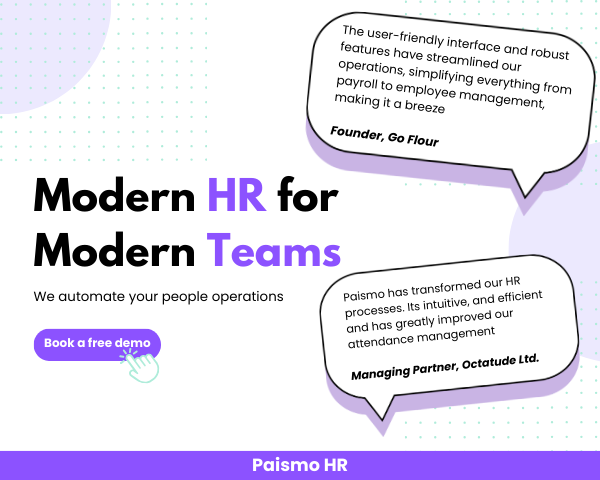The process of accumulating leave, vacation time, or benefits over time based on hours worked or tenure. PTO calculators can get tricky with numbers.
What Is Paid Time Off (PTO) Accrual?
PTO accrual is the process by which employees gradually accumulate paid time off based on hours worked or time spent with an organization. Instead of receiving all their time off at once, employees earn PTO over time, often per pay period, according to the company’s leave policy.
According to the U.S. Bureau of Labor Statistics, 79% of full-time American workers have access to paid time off, highlighting how essential PTO is in today’s workplace. For employers, offering an attractive and clearly structured PTO accrual policy can significantly boost talent attraction and employee satisfaction.
How PTO Accrual Works
Under an accrual model, employees earn PTO in set increments (e.g., hours or days) during each pay period. The amount earned can vary based on:
- Length of service
- Pay frequency (weekly, biweekly, monthly)
- Company policy
For example:
- In a biweekly pay cycle, an employee might accrue 4 hours of PTO per pay period, equating to 104 hours per year.
- In a weekly pay 4cycle, the same employee would accrue 2 hours per week.
Employers often reward loyalty by increasing accrual rates over time. For example:
| Years of Service | Accrual Rate (Per Month) | Annual PTO |
| 0–5 years | 8 hours | 12 days |
| 5–10 years | 10 hours | 15 days |
| 10+ years | 12 hours | 18 days |
PTO Accrual vs. Annual Leave
| Feature | Accrued Leave | Annual Leave |
| Accumulation Method | Earned gradually per pay period | Granted in full at the start of the year |
| Usage Flexibility | Limited to earned hours | Full balance available immediately |
| Ideal For | Organizations that prefer tracking incremental leave | Companies offering more flexible vacation use |
Example:
- Kyle receives his full 4 weeks of annual leave on January 1.
- Beth, on an accrual model, earns 1 week of leave every quarter. If Beth wants to take a 3-week vacation in July, she may not have accrued enough leave by that time unless previous time was rolled over, unlike Kyle, who can use his time as he chooses from day one.
Combined PTO vs. Separate Sick and Vacation Leave
Companies can choose to offer:
- A combined PTO bank (used for any reason, sick, personal, or vacation)
- Separate leave categories (e.g., distinct sick and vacation time)
Combined PTO promotes flexibility but may discourage employees from taking time off for illness if it cuts into vacation days. Separate leave policies can provide clearer boundaries and ensure that time off for health or emergencies doesn’t impact an employee’s ability to take a proper vacation.
Why PTO Accrual Matters
A well-structured PTO accrual policy helps organizations:
- Comply with labor regulations
- Promote employee wellness and work-life balance
- Reduce burnout and absenteeism
- Attract and retain top talent in competitive job markets
Whether you choose a traditional accrual model or lump-sum annual leave, the key is transparency, fairness, and aligning with your company’s operational and cultural goals.We have a detailed blog on PTO calculator and detailed breakdowns to assist you.
Become a part of the Paismo community
Paismo is an HR software that can help simplify your HR operations. In today's dynamic economic environment, efficient HR and automated payroll management are no longer a luxury but a necessity. Paismo is a comprehensive solution that transforms traditional HR complexes into streamlined and automated workflows. Paismo and its paired biometric device integration can be used for your business to mark employee attendance and record their timesheets accurately.
Paismo simplifies your tasks with its core HRMS, timesheets, and attendance management, as well as biometric attendance, payroll automation, and leave management system.
Take the first step toward modernizing your HR and payroll processes and explore what Paismo can do for you. Book a demo with our sales team.








